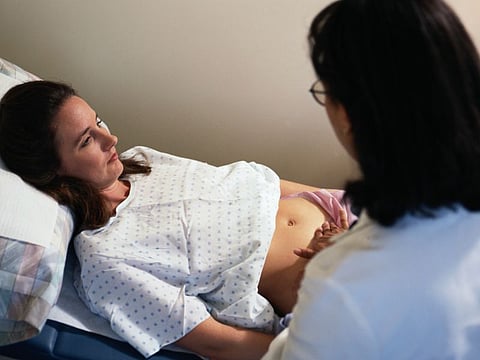Intergenerational Recurrence of Retained Placenta Observed
WEDNESDAY, July 26, 2017 (HealthDay News) -- Intergenerational recurrence of retained placenta is seen on the maternal and paternal side, according to a study published online July 21 in BJOG: An International Journal of Obstetrics and Gynaecology.
Margit Endler, M.D., Ph.D., from the Karolinska Institutet in Stockholm, and colleagues conducted a population-based cohort study to examine whether retained placenta in the first generation is associated with increased risk of retained placenta in the second generation. A total of 494,000 second-generation births with information on the birth of the mother (first-generation index birth) were identified using linked generational data from the Swedish Medical Birth Register (1973 to 2012). Information on the birth of the father was available for 292,897 of these births.
The researchers observed an increased risk of retained placenta in a second-generation birth if retained placenta had occurred at the mother's own birth, at the birth of one of her siblings, or both (adjusted odds ratios, 1.66, 1.58, and 2.75, respectively). If retained placenta had occurred at the birth of the father, the risk was also increased (adjusted odds ratio, 1.23). The risk of retained placenta in the second generation was increased six-fold if retained placenta had occurred at the mother's birth for preterm births in both generations (odds ratio, 6.55).
"There is an intergenerational recurrence of retained placenta on the maternal and most likely also on the paternal side," the authors write. "The recurrence risk seems strongest in preterm pregnancies."
Abstract
Full Text (subscription or payment may be required)


